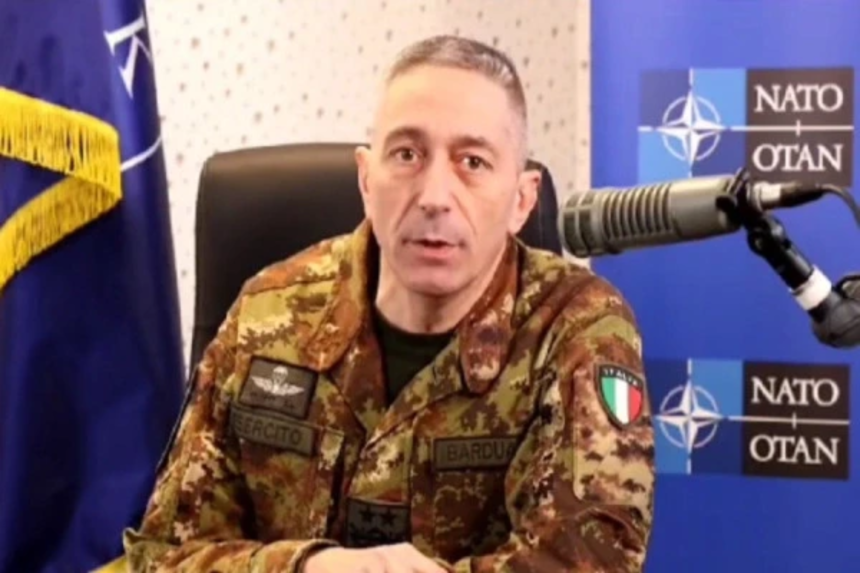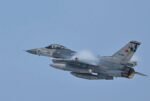The NATO-led peacekeeping force (KFOR) remains vigilant in Kosovo amidst a “calm but fragile” security situation, said KFOR Commander Angelo Michele Ristuccia Barduani. In an interview with KosovaPress, highlighting ongoing risks of escalation, Barduani pointed to unresolved tensions in Kosovo and regional disinformation campaigns as key challenges to maintaining stability.
Commitment to Security
Barduani emphasized that KFOR’s mission, operating under the UN Security Council Resolution 1244 mandate, remains focused on ensuring a safe and secure environment in Kosovo. “Our role is to prevent violence and maintain peace, especially in sensitive areas such as northern Kosovo and along the administrative boundary with Serbia,” he stated. Regular patrols, close collaboration with the Kosovo Police, and contingency plans are central to KFOR’s strategy.
Recent Incidents Highlight Vulnerabilities
Reflecting on the recent terrorist attack on the Ibër-Lepenc canal, Barduani described the incident as a stark reminder of Kosovo’s vulnerabilities. While refraining from commenting on specific investigations, he underscored KFOR’s role in supporting local authorities to prevent such events from disrupting public order.
In response to allegations of Serbian armed groups using religious sites for military purposes, Barduani stated that KFOR has not observed evidence of such activities and emphasized the importance of relying on Kosovo law enforcement agencies to handle these concerns.
Importance of Political Dialogue
Barduani strongly advocated for political dialogue as the only path to lasting peace. He stressed the significance of implementing agreements aimed at normalizing relations, with particular attention to resolving contentious local issues like the reopening of the Ibër Bridge. “These are political decisions that require international coordination and consensus,” he remarked.
Cooperation with Regional Forces
Maintaining open channels of communication with regional stakeholders, including Kosovo’s institutions and neighboring countries, remains a priority for KFOR. Barduani noted the importance of reducing risks of misunderstanding or escalations in the region.
Preparedness for Upcoming Elections
Looking ahead to early 2025 elections in Kosovo, Barduani assured the public that KFOR will work closely with local security institutions to ensure a safe voting process. “If needed, NATO is prepared to deploy additional reserve forces to respond to any potential developments,” he added.
Long-Term Vision
While KFOR’s presence in Kosovo has significantly reduced since its inception in 1999, Barduani reiterated that the mission will continue until political solutions provide lasting stability. “Our goal is to create conditions where our presence is no longer necessary, but that requires commitment from all sides to peaceful resolution and dialogue,” he stated.
As Kosovo navigates a delicate phase in its history, KFOR’s impartial role as a stabilizing force remains crucial. Barduani’s call for political engagement and regional cooperation serves as a reminder that the path to lasting peace is rooted in dialogue and shared responsibility.







